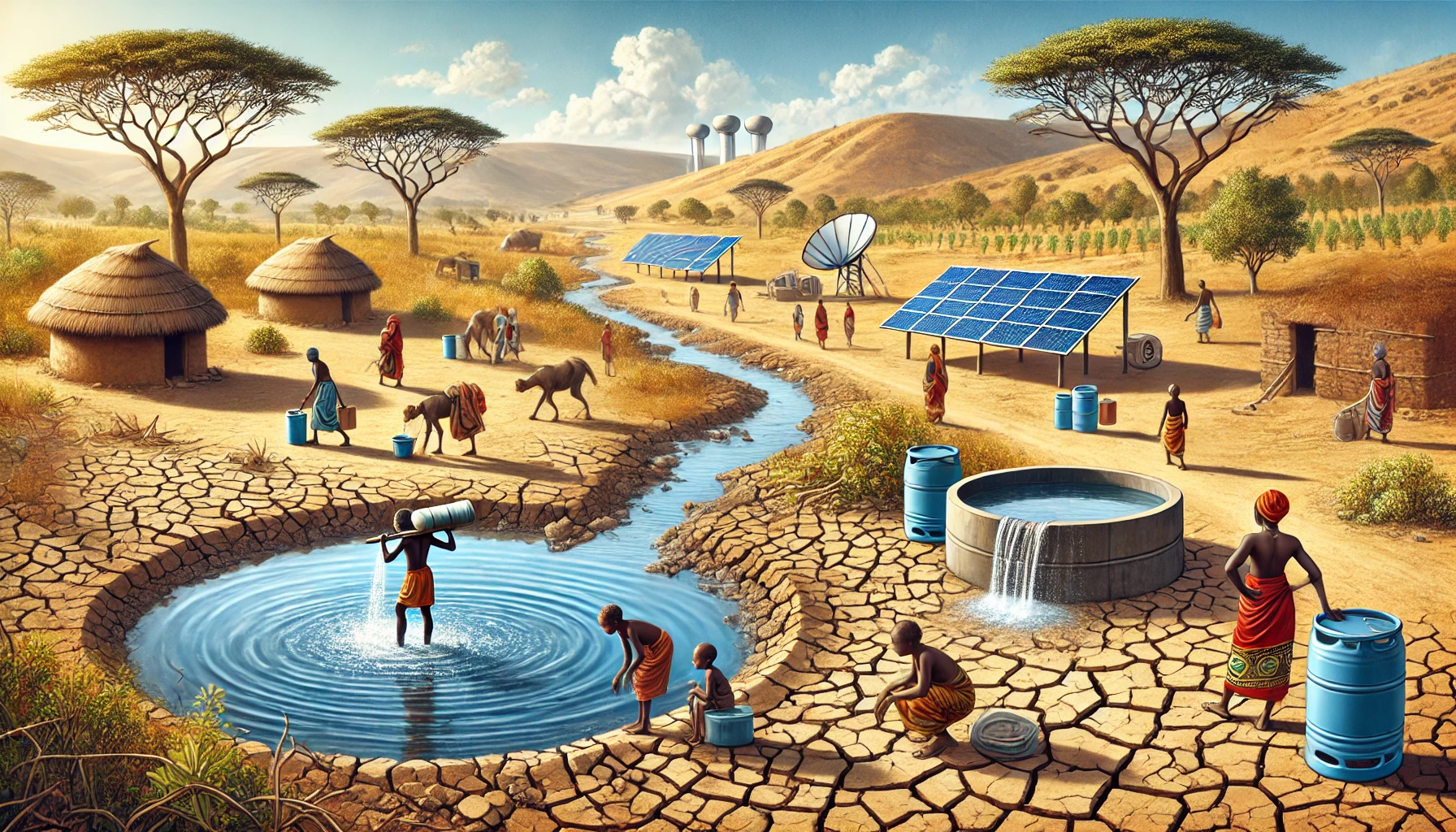From Scarcity to Sustainability: Rumphi’s Water and Sanitation Transformation Underway
The Rumphi Technical College, a beacon of vocational hope for northern youth, exemplifies both the challenges and the promise of this initiative.

- Country:
- Malawi
In the verdant hills of northern Malawi, progress is stirring—not just through the hum of new learning at the fast-growing Rumphi Technical College, but through the promise of clean, sustainable water and improved sanitation. After years of grappling with daily water shortages, unsafe sources, and public health scares, the people of Rumphi District are witnessing the dawn of a long-awaited transformation through the Rumphi Water and Sanitation Services Project.
Spearheaded by the Northern Region Water Board (NRWB) and funded by a $32.2 million grant from the African Development Bank Group, alongside a $3.67 million contribution from the Malawi Government, the four-year project (running from December 2023 to December 2027) aims to provide sustainable, climate-resilient potable water and safe sanitation services to over 158,000 people, more than half of them women.
A College in Crisis: Education Interrupted by Water Insecurity
The Rumphi Technical College, a beacon of vocational hope for northern youth, exemplifies both the challenges and the promise of this initiative. With enrollment skyrocketing from a handful of students to 534 learners supported by 45 staff members in just four years, the college’s potential is stymied by a basic need—clean water.
“We’re sometimes forced to send students to fetch water from unprotected sources, including a salty borehole left by the contractor,” laments Principal Akuzike Nkhoma. “It’s neither safe nor sustainable.”
The cost of this water crisis has been more than inconvenience. Just months ago, a cholera scare erupted on campus, sending 100 students to the Rumphi District Hospital after they were forced to use unsafe water sources during a prolonged outage.
A Town on the Brink: Infrastructure Stretched Beyond Its Limits
Rumphi’s water challenges extend far beyond the college gates. The town relies on a 200,000-liter tank, built to serve a much smaller population in 2003. Today, the system groans under the pressure of explosive urban growth, delivering water to just 23% of the population—and only for a few hours each day.
Francis Munthali, Chief Executive Officer of NRWB, paints a stark picture: “Back then, this tank was enough. But now, with more households, schools, and facilities, it simply can’t meet the demand. We are in a real crisis.”
Water rationing is the norm. Prioritizing one institution, such as the Technical College, means depriving hospitals and households elsewhere.
Demand now exceeds 10 million litres per day, nearly seven times the 2003 infrastructure’s design capacity of 1.5 million litres. Meanwhile, no major rehabilitation has been undertaken since 2004.
A Women’s Burden: The Gendered Cost of Water Shortages
At community forums, residents like Dora Mkandawire voice their exhaustion. “We women bear the brunt. Society expects us to fetch water. These constant interruptions rob us of time and productivity.”
Many surrounding communities, especially Phwezi, Bwengu, Enukweni, and Bolero, rely on unsafe wells or limited community-led gravity systems. Access to clean water is not just a comfort—it is a matter of gender equity, health, and dignity.
The Rumphi Water and Sanitation Services Project: A New Beginning
The solution lies in a comprehensive intervention: the Rumphi Water and Sanitation Services Project, designed to rehabilitate and expand the water infrastructure, establish a modern sewer system for the town (the first of its kind), and extend safe water supply to previously neglected trading centres and rural growth nodes.
“This project is not only about pipes and tanks. It’s about restoring dignity, improving livelihoods, and ensuring environmental sustainability,” said Catherine Mwafulirwa, Director of Infrastructure Development at NRWB.
Key project components include:
-
Upgrading water supply systems and expanding coverage to Bolero, Phwezi, Bwengu, Enukweni
-
Establishing Rumphi’s first-ever town-wide sewer system
-
Restoring forest landscapes and implementing ecosystem-based adaptation strategies
-
Planting 700,000 trees to protect watersheds and ensure long-term water security
-
Job creation through nursery development and afforestation efforts (264,000 trees already planted)
Community-Centered, Climate-Resilient Development
The project takes an inclusive and climate-sensitive approach, ensuring that women, schools, healthcare facilities, and underserved areas are prioritized. It is aligned with Malawi’s broader goal of achieving universal access to safely managed water and sanitation while adapting to the realities of climate variability and population growth.
Rumphi District Commissioner Emmanuel Bulukutu emphasized the catalytic potential:
“Rumphi is growing, but without water and improved sanitation, development stalls. This project is critical—not just for the Technical College but for every household, business, and clinic. It’s about building a thriving, healthy, and prosperous community.”
Bulukutu affirmed the district’s full commitment to supporting the implementation, noting that all local structures will work closely with NRWB to ensure timely delivery and community ownership.
The Road Ahead: Connecting the M1 Corridor With Clean Water
Upon completion, the project will close the final gap in the Mzuzu–Rumphi stretch of Malawi’s M1 road, providing clean water access along the 83-kilometre corridor that connects Mzuzu to Ekwendeni, Enukweni, Bwengu, Phwezi, and eventually Rumphi town.
This investment in infrastructure not only strengthens public health and education, but also boosts economic opportunity, making Rumphi a potential hub for trade, education, and innovation in northern Malawi.
Water, Dignity, and a Future Within Reach
What began as a quiet struggle for water in Rumphi has now transformed into a national development priority. The Rumphi Water and Sanitation Services Project is more than a public works program—it is a statement of hope and equity for a region that has long endured systemic neglect.
For the students at Rumphi Technical College, for the women fetching water before dawn, and for the next generation of entrepreneurs and educators, this project is about securing the most basic of rights—clean water—and unlocking the limitless potential of a community on the rise.










